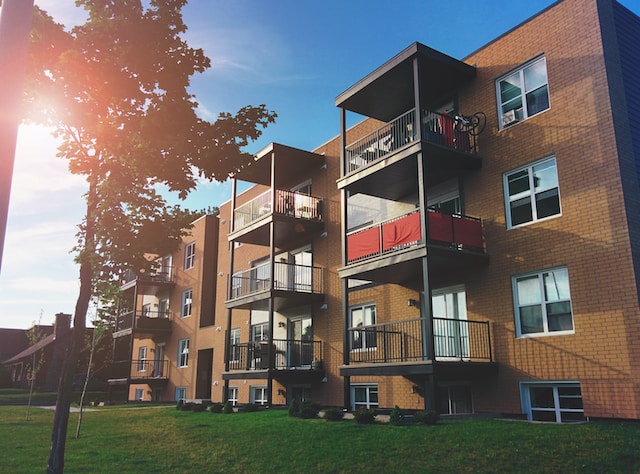Just about everyone has heard of dorms specifically for entering freshmen. But did you know that you can also request a specialty dorm? Most colleges have designated dorms to meet the needs of a diverse student population. If you have a preference regarding your living accommodations on campus, ask about these dorms on your college visit and upon accepting an offer of admission.
Specialty dorms fall into three categories: academic housing, lifestyle housing, and living-learning communities.
Academic housing
Academic housing is centered on the pursuit of knowledge while you are attending college. Students who desire a focused education and who wish to live with like-minded students, should inquire about academic housing in one of three designated categories:
- Academic major — Academic major housing brings together students pursuing a common professional field such as engineering, science or any other focused field of study.
- Foreign language dorms—If being immersed in the culture and language of a foreign country interest you, these dorms would be an option. They may, however, require separate applications to determine a student’s language proficiency, along with a signed agreement to participate in the language program required for the dorm.
- Honors housing— Honors housing fuses residence hall living with honors learning, providing a stimulating intellectual and social atmosphere. Students in honors housing are pursuing many different paths of study, unlike the academic major housing.
Lifestyle housing
Lifestyle housing addresses the various lifestyles of the student body and allows them to live together in a likeminded atmosphere. Each college is different and may not offer all of the options below but available housing options will be listed on the college’s website.
- Gender neutral / LGBT housing—The rationale behind this housing strategy is to offer a living environment that will be more welcoming, inclusive, and comforting for students. Originally it was designed to accommodate lesbian, gay, and transgender students who felt more comfortable rooming with someone of the opposite gender, but it was later expanded to include anyone who requested it. If this type of housing is important to you, check out these 50 LGBT friendly colleges.
- Substance free housing—If you are a student who desires to be substance free and room with students who have made that commitment, consider this type of dorm. Students who live in substance free housing agree that they and their guests will not consume alcohol or be under the influence of alcohol or other substances while in the residence hall. In addition, they agree to abide by the college’s non-smoking policy, the college’s prohibition against illegal drug use, and the college’s policy which requires only medically prescribed use of prescription drugs.
- Same sex housing— Some students request to live in an all-female or all-male dorm or floor. Colleges accommodate these requests by designating same-sex floors in coed residence halls. Many colleges offer educational programming for same-sex floors designed to help residents explore women’s and men’s issues through events focused on gender.
- Race designated housing—Recently, UConn designated an all-male dorm for African-American students. In a recent article on Inside Higher Ed, UConn explained the reasoning behind their decision, “Researchers have found that black students face a number of barriers to finding college success on predominantly white campuses. They struggle with underrepresentation, social isolation, academic hurdles and racial stereotyping from both their peers and their professors.” While some believe this promotes racism, others see it as a way to motivate, encourage and inspire these students.
- Quiet dorms—These dorms are designed specifically for those students who wish to live in a quiet, non-disturbing atmosphere. These dorms are by no means an anti-social environment, but one in which its residents are more considerate and respectful of the desires of their dorm mates to stick to their own sleep, work, and study schedules.
Living-learning communities
Living-learning communities offer unique opportunities for students. This type of residential and academic learning experience results in a higher cumulative GPA and increased interaction between faculty and students.
- Enhanced learning — Enhanced-learning communities explore a specific area of interest (e.g., community service, service learning or leadership) through academic courses and co-curricular experiences. These communities are open to students of any academic major.
- Themed housing — Themed housing offers students with common interests the opportunity to live together. Residents are encouraged to create a community by engaging in shared activities. Some examples might be a focus on environmental issues, sustainable living and global awareness.
Your living arrangements will have a great impact on your college experience. An unhappy dorm life will translate into an unhappy college life. These specialty dorms provide students the opportunity to find their home away from home at college.

